The secrets to Spin Master's success? Acquisition and innovation
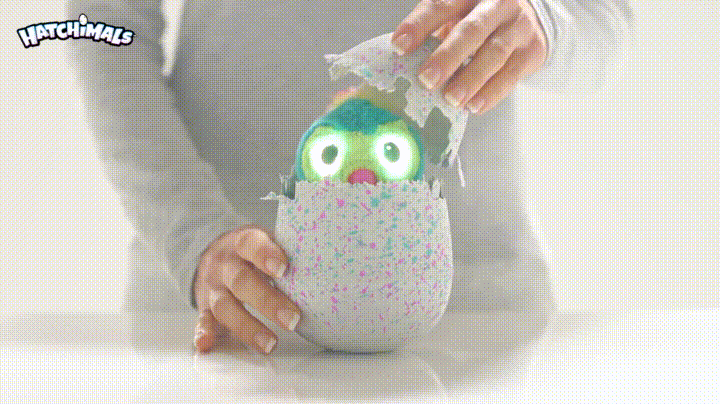
Spin Master, the Canadian toy company behind the uber-popular Hatchimals and Air Hogs, announced this week that it’d be buying stuffed toy brand Gund for US$79.1 million (around C$102.5 million).
The deal gives Spin Master access to Gund’s 120-year legacy and helps pave the way for future sales in the plush toy category which, according to NPD insight, was one of the fastest growing sub-categories in 2017, swelling six per cent predominantly on the back of Hatchimals.
“They’re trying as a company to (follow) the Hasbro and the Mattel model more than the Lego model which is to go really deep in one brand,” Richard Gottlieb, the chief executive of Global Toy Experts and publisher of Global Toy News told Yahoo Canada Finance. “What they’re doing is really taking on a lot of brands which will generate additional revenue and it really puts them in a position of having their fingers in just about any toy buying department at a retailer.”
The Gund purchase is the toy maker’s ninth acquisition since it went public in 2015 and the 20th since it was founded in 1994 by childhood friends Ronnen Harary and Anton Rabie, and their Western University classmate Ben Varadi.
We take a retrospective look at Spin Master’s acquisitions and milestones over the past two and a half decades:

The first years and Earth Buddies (1994 to 1997)
Fresh out of university, the toy entrepreneurs funneled $10,000 of their own money into their first product the Earth Buddy, a nylon-stocking covered head stuffed with sawdust and grass seeds which sprouted to look like hair when watered. They took to the streets and specialty retailers, selling the toy before expanding to a small facility in Toronto.
Spin Master followed up with a string of other novelty toys including a line of devil sticks, a riff on juggling sticks which quickly became identifiers for the coolest kids in the schoolyard.
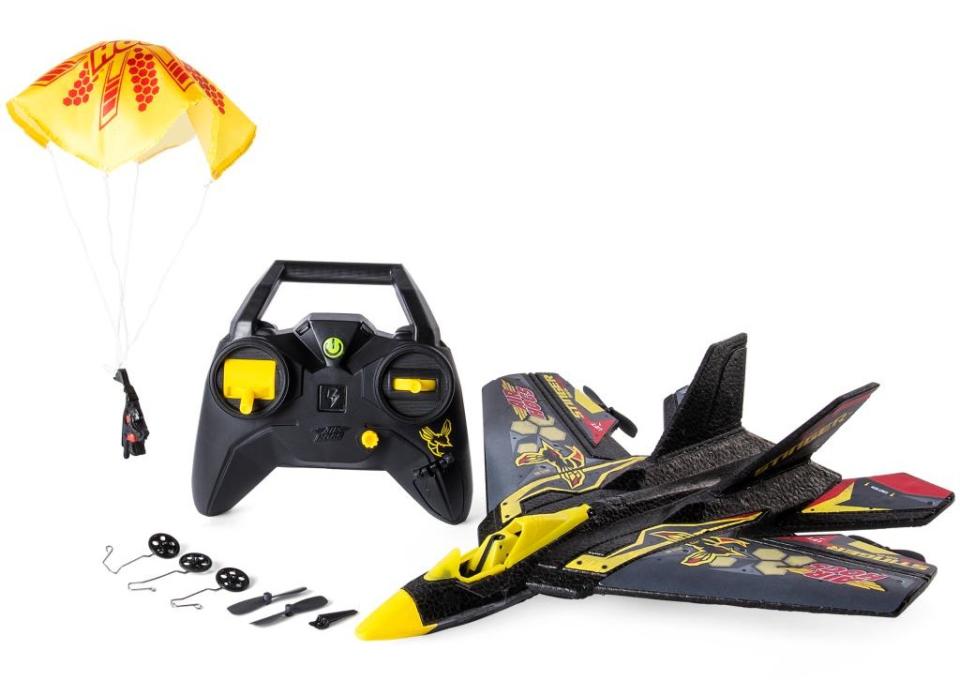
Spin Master takes flight with Air Hogs (1998 to 2006)
Next came the Air Hogs Sky Shark, an air pressure pump plane toy, which made its debut in the spring of 1998 after two years and half a million dollars worth of research and development. The Sky Shark put Spin Master on the map, becoming one of the most popular toys in the world and earning them a slot on daytime television tastemaker Regis and Kathie Lee alongside other international press.
The company, which had grown to 28 employees by 1999, told the LA Times they were already “assessing 1,000 inventions a year.” They’d moved their manufacturing supply chain to Hong Kong in 1998 and were ready to rise as a new name in the toy industry.
The company scored another success in 1999, with Flix Trix Finger Bikes, a string of 1/2 inch replicas of BMX bikes. In 2003, the company made its first corporate acquisition buying Bounce ‘Round, a company that created scaled down versions of the inflatable bouncy castles. Over the next handful of years, Spin Master opened offices in the U.S., Japan and Western Europe.
Spin Master pushes into entertainment (2007 to 2009)
In 2007, the company bought X-Concepts, maker of the Tech Deck brand of finger-sized skateboards. The collectibility of the little skateboards and Spin Master’s growing clout provided an opportunity to capitalize on major entertainment brands and release a line of Tech Decks tied to some of the biggest skateboarding brands at the time.
But the best was yet to come.
On the heels of its big purchase, Spin Master launched Bakugan, a card game developed around plastic balls which burst open to reveal anime-style characters. The toy, which was developed in conjunction with Sega and the popular Bakugan anime show became an astronomical success, selling out for Christmas in 2008 and winning Toy of the Year in 2009. The product was a partnership coup, using a revenue-sharing model with Sega, TMS, Japan Vistec, Corus Television and Nelvana Entertainment, and establishing Spin Master as an innovative competitor to other toy brands.
By 2009, the company had reached 1,000 employees. But was it growing too fast?
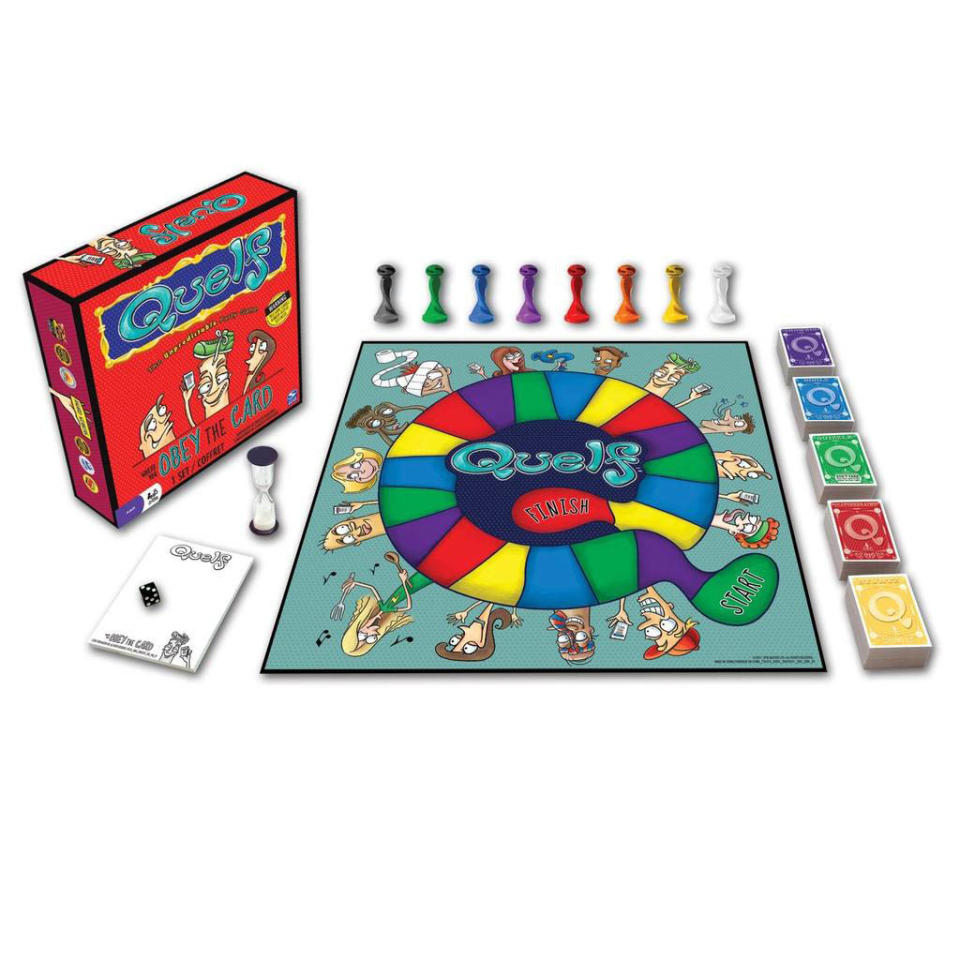
Growing pains and more acquisitions (2010 to 2014)
2010 broke records for the company as it received ten Toy of the Year nominations. Air Hogs and Bakugan were still selling and Spin Master’s foray into the girl-focused category with Liv Dolls earned the company its first girl toy nomination (albeit, the brand would prove to be a commercial failure).
Then came the layoffs. In 2011, Spin Master axed around 20 per cent of its employees between North America and Asia. The acquisitions, however, continued.
That same year, Spin Master acquired Imagination Games, the U.S.-based maker of board games like Quelf and Would You Rather? and launched a subsidiary called Spin Master Games. In 2012 it bought Spy Gear, a line of spy-themed toys, and the following year it bought heritage building-set brand Meccano. It also started producing apps and growing its interactive games category with Zoomer, a robo-dog as its breakout hit from its newly-formed Spin Master Robotics division.
In 2014, Spin Master was named Walmart’s Toy Supplier of the Year.
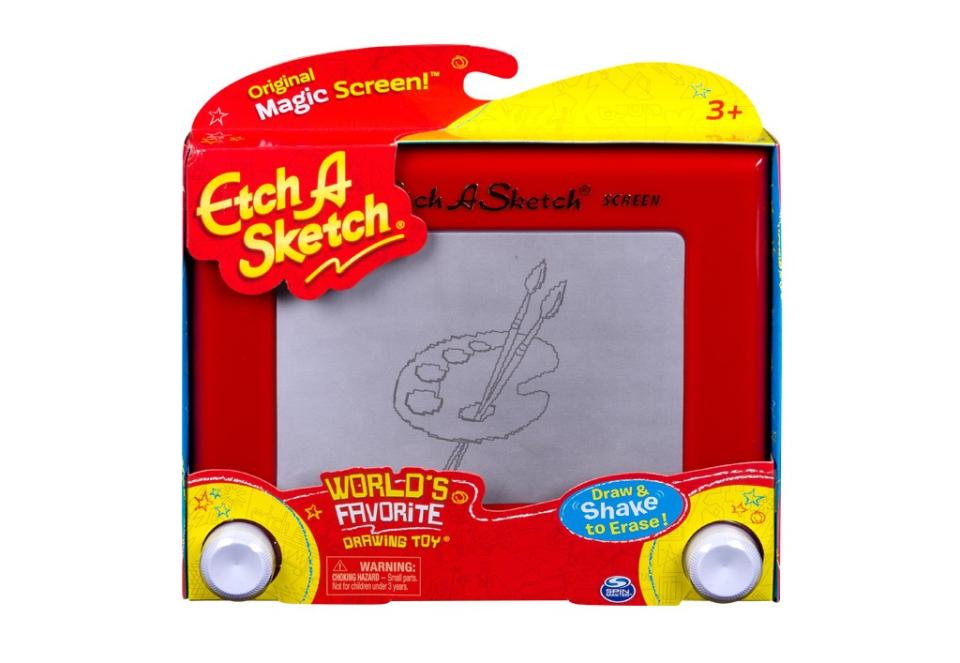
A Canadian toy IPO story (2015)
In June 2015, Spin Master announced that it had inked an agreement to acquire Cardinal Industries, a 60-year-old game, and puzzles company. The purchase made Spin Master the second largest games company in the U.S. A month after announcing it was buying Cardinal, Spin Master debuted on the Toronto Stock Exchange, at $18 per share. The initial public offering helped the company raise $220 million.
And Spin Master wasn’t even close to completing its acquisition spree. In January 2016 it purchased the library of award-winning board games owned by Editrice Giochi SRL, one of the oldest privately-held toy game companies in Italy. In February, it bought the iconic Etch A Sketch and Doodle Sketch brands from The Ohio Art Company for an undisclosed price. In April, it purchased digital toy makers Toca Boca and Sago Mini from the Bonnier Group of Sweden. It followed up that purchase in August by diversifying into the water and outdoor sports category through its acquisition of Swimways corporation.
The international purchases, explains Gottlieb, gave Spin Master access not just to talent and product lines but local expertise as well.
“You’re buying their culture and their ability to understand in an intimate way that somebody outside of the culture cannot,” he says. “They’re not an American company, they’re a Canadian company so they’re on the inside but on the outside too looking in so that may give you a little bit of a different worldview.”
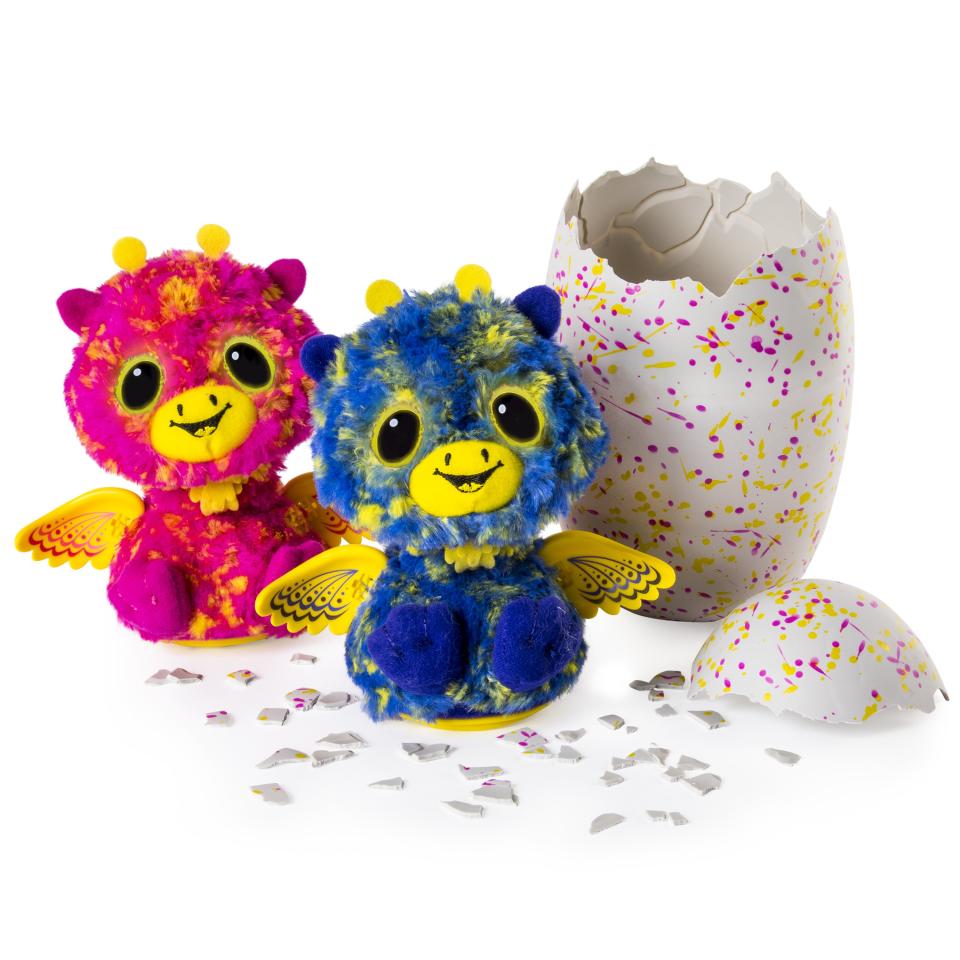
Hatchimals and the future of play (2016 to present)
In December of 2016, Spin Master made international headlines again, this time surrounding the success of its Hatchimals toys, speckled eggs which hatch furry mutant animal creatures. The toy sold out so quickly, Spin Master was unable to restock before the holidays, which some analysts suspected would cost the company $3- to $9-million in potential sales.
“No one ever expects that to happen… you can’t plan around that,” says Gottlieb. “Sometimes lightning strikes – but I think lighting strikes a little more with them than it does the other companies.”
By 2017, Spin Master was back on the hunt, acquiring Marbles, the Chicago-based maker of Otrio; Aerobie, a leading producer of outdoor flying disks and sports toys; and Perplexus, a 3D ball-in-a-maze it had been distributing since 2013.
With the acquisition of Gund this week, Spin Master is using a different growth strategy than the typical approach in the industry, which Gottlieb says is for small toy companies to eventually sell out to Mattel or Hasbro.
Spin Master isn’t selling out, it’s competing. “They’re taking shelf space and more importantly, mindshare,” says Gottlieb adding that Spin Master’s secret to success has always revolved around their ability to find the right product that’ll catch kids attention.
“Mattel has challenges they have to overcome and Hasbro has external challenges that they have to overcome – it’s really a nice opportunity for these other companies to grow,” says Gottlieb. “It’s a good time to be a Spin Master.”
Spin Master declined a request for comment on its acquisition and growth strategy.
Download the Yahoo Finance app, available for Apple and Android.

 Yahoo Finance
Yahoo Finance 